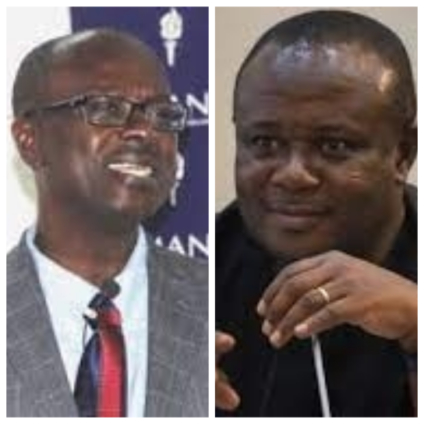US-based Ghanaian Accounting Professor, Stephen Kwaku Asare, has condemned comments by First Deputy Speaker, Joseph Osei-Owusu that the Rastafarian religion is associated with weed smoking.
In the Professor's opinion, being Rastafarian doesn't necessarily mean one smokes weed.
"Weed is smoked by a whole bunch of people, one does not have to be a Rastafarian to smoke weed...It is a moot question because one does not go to school to smoke weed. If you're caught, you'll be dealt with," he said Friday, on the Super Morning Show.
This follows comments by first Deputy Speaker, Joe Osei-Owusu, that references made to the Rastafarian religion in the case of some students who have been denied enrolment into some Senior High Schools may complicate matters for the students.
This, he explained is because of the misconception held against some practices of the religion.
He argued that Rastafarianism is mostly associated with weed-smoking, and this he believes may not help in resolving the situation at hand.
“I get worried in the attempt to rope in Rastafarianism as religion. If we do that, then we complicate the matter. The reason is this: If you study Rastafarianism, it includes the smoking of weed and weed is an illegal substance. It is not a substance that is permitted to be smoked,”. the first Deputy Speaker said.
However, the Professor says such comments are not needed in the current discussion.
"I'm not sure what the relevance of the insertion of weed into an important debate about a very important discussion on the right of students to enjoy religious freedom and the equally import rights of school authorities to have rules that facilitate learning environment.
"And for the Deputy Speaker to insert weed in this conversation, I was frankly very shocked and appalled. There's no place for that type of insertion in this important debate," he added.
This comes in the midst of controversies surrounding the denial of admission by some Public Senior High schools to Rastafarian students, on grounds that it is against the rules of the schools to admit students with such hairstyle.
The move by the schools has generated a public debate as to whether school authorities have the right to do so or not.
A school of thought believes that the decision is discriminatory, however, others also believe school authorities are right since every student must conform to the rules of the schools.
At the height of the controversy, six schools are reported to have offered to admit the students unconditionally, with some offering to admit them on full scholarships plus providing free meals to them.
Latest Stories
-
Bawumia joins thousands in Kumasi for burial prayers for Ashanti Regional Imam
34 minutes -
Blue Gold Bogoso Prestea Limited challenges government actions in court
1 hour -
Patrick Atangana Fouda: ‘A hero of the fight against HIV leaves us’
2 hours -
Trinity Oil MD Gabriel Kumi elected Board Chairman of Chamber of Oil Marketing Companies
2 hours -
ORAL campaign key to NDC’s election victory – North America Dema Naa
3 hours -
US Supreme Court to hear TikTok challenge to potential ban
3 hours -
Amazon faces US strike threat ahead of Christmas
3 hours -
Jaguar Land Rover electric car whistleblower sacked
3 hours -
US makes third interest rate cut despite inflation risk
3 hours -
Fish processors call for intervention against illegal trawling activities
4 hours -
Ghana will take time to recover – Akorfa Edjeani
4 hours -
Boakye Agyarko urges reforms to revitalise NPP after election defeat
4 hours -
Finance Minister skips mini-budget presentation for third time
5 hours -
‘ORAL’ team to work gratis – Ablakwa
5 hours -
Affirmative Action Coalition condemns lack of gender quotas in Transition, anti-corruption teams
5 hours

